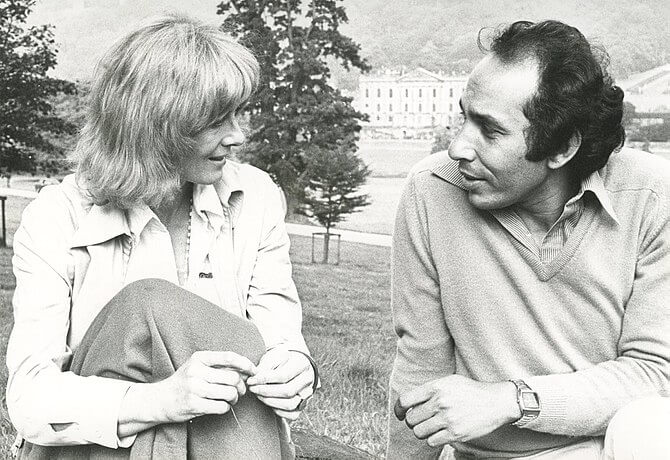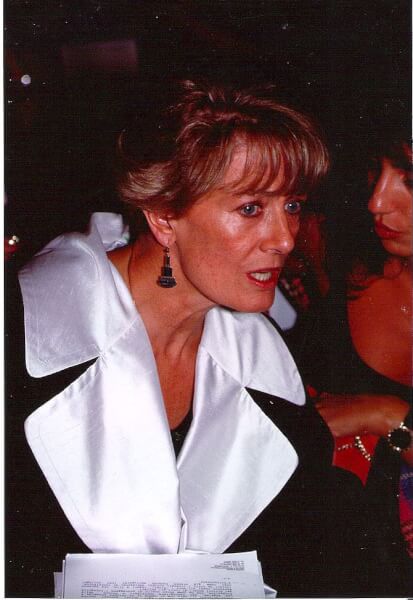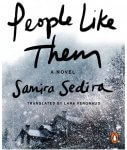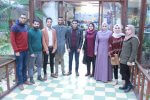A very special Oscar Night
One of my personal favorite topics is the movie industry and the racism and bias that the industry allows based on politics. This incident involving Vanessa Redgrave back in 1978 impacted my life and characterized the injustices of the American media on so many levels
By Ray Hanania
(Originally published in 2006)
It was the Spring of 1978 and I was, like most Americans, sitting in front of my TV set wondering which movie was going to win the Oscar for Best Movie. The competition included: “Annie Hall;” “Goodbye Girl;” “Julia;” “Star Wars;” and, “Turning Point,” all premiered the previous year. My favorites were “Star Wars” and “Close Encounters of the Fourth Kind,” which was up for other nominations that year. Well, “Annie Hall” won as “Best Movie.”
The Best Actor award went to Richard Dreyfuss and Best Actress was Diane Keaton. Then there were the lesser awards for Best Supporting Actor, which went to Jason Robards for his portrayal in “Julia,” a movie about Nazi persecution of Jews during World War II, and then Best Supporting Actress that went to Vanessa Redgrave, for her portrayal in the same movie, “Julia,” too.
I hadn’t heard much about Redgrave prior to that time. But she came to the podium and began her acceptance speech by noting that outside the auditorium where the Oscars were being held, belligerent members of the extremist organization, the Jewish Defense League, were protesting against her. And she was wearing what looked like a traditional Palestinian embroidered dress.

My eyes and ears perked. The JDL was the anti-Arab terrorist organization of the 70s who enjoyed a double standard in America and the West. While Arab terrorism was constantly being denounced, the terrorism of the fanatic JDL was being ignored. In all the years I had been watching the Academy Award presentation, I don’t recall ever seeing an Arab win. Certainly, it was not the place for politics, but the JDL had certainly decided to turn that year’s event into a political imbroglio.
The JDL was getting a lot of sympathetic media coverage, and the protest prompted Redgrave to respond, since it was at the Oscars that the protest was taking place. Redgrave held her head high, aware of the bigotry that existed among the auditorium filled with people whose careers were built upon producing and directing dozens of anti-Arab movies over the years. She declared defiantly that she would not be intimidated by “a small bunch of Zionist hoodlums whose behavior is an insult to the stature to Jews all over the world.”
I remember jumping to my feet and waving my hands in the air cheering like it was the New Year. Because in effect, Vanessa Redgrave had, at least for me, ushered in a new era. She was among the first people I had ever heard of who dared to stand up to the hateful filmmakers who churned out dozens and dozens of movies founded on anti-Arab themes, stereotypes and falsehoods.

My mother couldn’t figure out what the commotion was, and when I explained, a smile crossed her face, too.
As Arab Americans, we knew all too well how difficult it was to live in this country even back in the 70s, the so-called years of American civil liberty enlightenment. For everyone else, maybe, but not for Arab Americans.
She sat with me. Soon, my brother and sister were watching the Oscars. I am sure my dad, who passed away a few years earlier, was watching, too.
And that’s just about when a short little jerk named Paddy Chayefsky stepped up to the microphone as one of the award presenters. He is the racist who produced the movie Network, which included several gratuitous anti-Arab references. Chayefsky denounced Redgrave as every member of the Hanania family stood and hollered and hooted at the TV screen.
Afterwards, I listened as news announcers and Hollywood commentators started to denounce Redgrave, all because she had stood up for herself and refused to be intimidated by the JDL thugs. The JDL was angry because Redgrave had the previous November completed a second movie, besides “Julia,” called “The Palestinian.”
Ironically, it was her role in “Julia” that led Redgrave to become aware of the plight of the Palestinians. While making “Julia” in Paris in 1976, she came to know a young Palestinian couple and their friends. They told her about the siege of Tal al-Zaatar, a Palestinian refugee camp in Lebanon, which right-wing Falange militias trained by Israel had bombarded for months, cutting the inhabitants down with sniper fire when they dared to leave the camp for water. By the end of the siege, 3,500 men, women and children had been killed. “What had happened at Tal al-Zaatar was so hideous that I immediately wanted to do something to assist the situation,” Redgrave later wrote. What she did was recruit a film crew in France and Italy, hire a director, sell her two houses in London to raise the necessary funds, and in the spring of 1977 set out for Lebanon to make a film about the Palestinians.
“The Palestinian” premiered in November 1977 at the London Film Festival, but in the U.S. neither the Public Broadcasting Service nor any other network would show it. Because of her sympathy for the Palestinians, she was accused of being a terrorist.
In 1980, she agreed to perform in a new movie, “Playing for Time,” and to portray Fania Fenelon Goldstein, the Holocaust survivor who wrote the book on which the script was based. The film was a salute to the strength of Jewish survivors of the Holocaust, yet anti-Arab leaders throughout the world denounced Redgrave’s being selected to play the concentration camp inmate. “It’s a horrible insult. Six million Jews will roll over in their graves,” said Jewish Defense League leader Irv Rubin*. Howard Squadron, president of the American Jewish Congress, called Redgrave’s selection for the role “grotesque.”
Even Goldstein, provoked by the anti-Arab hysteria and lies that were being published, protested the casting, asserting ignorantly that Redgrave “is known to be anti-Semitic.” Redgrave was well known for her support of peoples around the world who were victims of persecution. She has supported such causes as nuclear disarmament, opposition to the Vietnam war, independence for northern Ireland, freedom for Soviet Jews, and, aid for Bosnian Muslims and other victims of Serb aggression. In 1993, Redgrave was awarded the Sakharov medal by Elena Bonner for her efforts on behalf of Soviet Jews. During the early 1970s she put the money she earned from films into a charitable trust for disadvantaged children, and in 1973 she built and equipped a nursery school for children in a poverty-stricken section of London.
In 1980, her effigy burned outside studios in Hollywood and Philadelphia. In Philadelphia, snipers fired shots into one of the buildings. The Los Angeles station KNXT-TV reported “numerous bomb threats.”
The blacklisting, which reminded many of the blacklisting of Jews from Hollywood productions by Senator Joseph McCarthy in the 1950s, continued. In April 1982 the Boston Symphony Orchestra cancelled a sold-out performance of Stravinsky’s “Oedipus Rex,” with narration by Vanessa Redgrave, because some financial supporters of the orchestra claimed her appearance would offend the Jewish community. Several American productions have been cancelled since because of hatred directed toward Redgrave’s appearances.
To me, and to most Arab Americans and Arabs around the world, Redgrave stands for what is just in this world, a reminder that justice is not the privilege of those who have power or numbers in public opinion, but by everyone, including a small minority of people whose lands were stolen from them in 1947.
(Ray Hanania is an award winning columnist. Reach him at www.TheDailyHookah.com. Or email him at rghanania@gmail.com)


- Israelisnipers shooting and killing hospital workers in Gaza - December 11, 2023
- CAIR Condemns Israeli Executions of Wounded, Unarmed Palestinian in West Bank - December 11, 2023
- Arab and Muslim American voters face a “simple choice” between Biden’s inhumanity and Trump’s edgy politics - December 9, 2023























